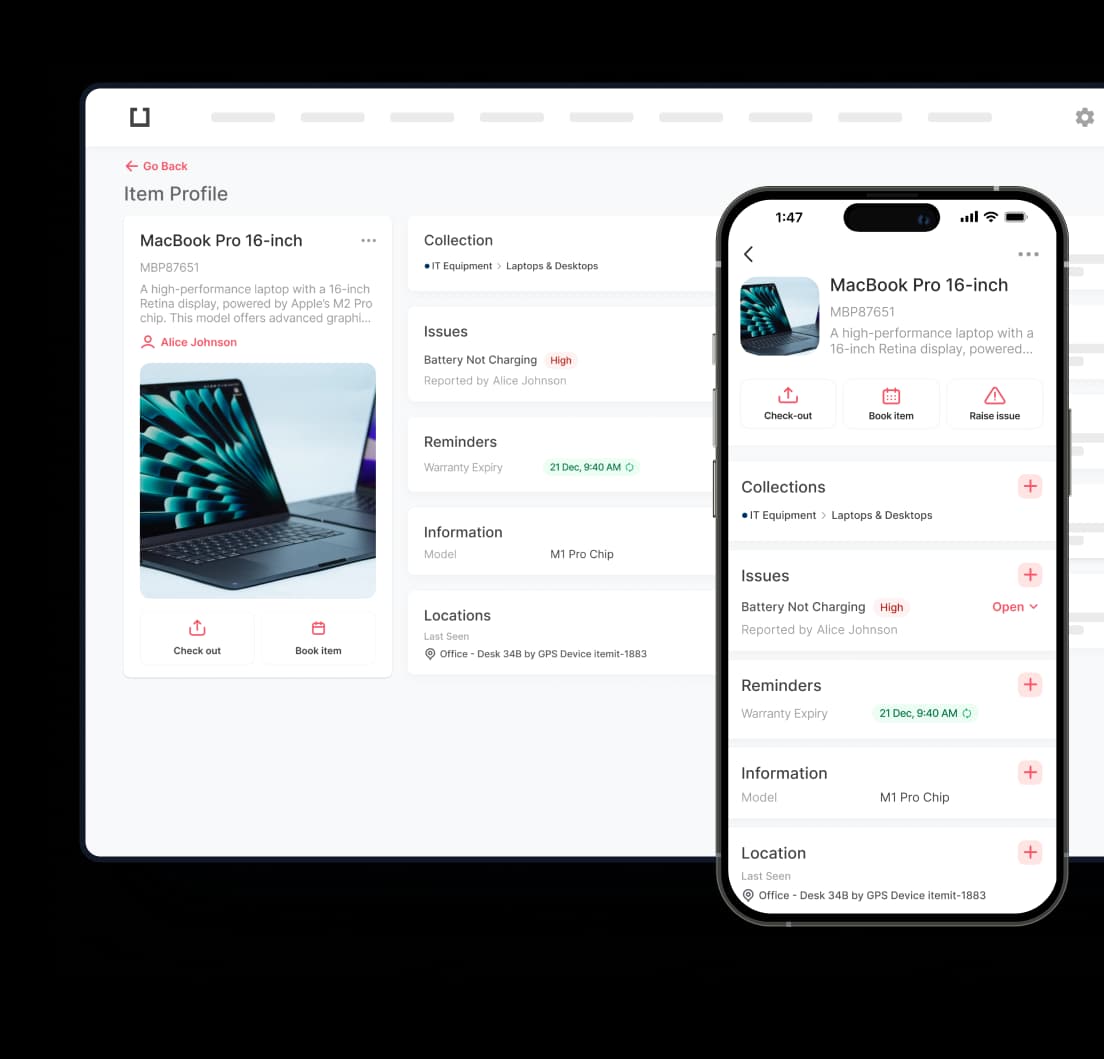When it comes to the different departments in a company, each one is assigned a particular business role and has employees with similar skill sets. One department might handle human resource management, while the other takes care of marketing or manufacturing.
Now there’s no department that could perform the most functional tasks if it didn’t have the right assets. This brings us to a simple, but significant, conclusion: Asset tracking software helps every department in your company!
How Does Asset Tracking Software Work?
There are various applications of asset tracking software for different departments. But before we discuss that, let us briefly go over what it is and how it works. No matter which department is using the asset management software, its core function remains the same: recording and storing asset details so they can be accessed anytime, anywhere.
Asset tracking software allows you to create a comprehensive asset register for all the assets you own in an organised, online database. Asset details such as location, assignee, condition, maintenance information and much more can be recorded effortlessly and stored with a unique asset identity.
Whenever you want to look up an asset, find out where it is, who has it or if it needs maintenance, you know everything you need in a matter of seconds. In other words, asset tracking software brings your company’s or department’s asset management to your fingertips.
Applying Asset Tracking Software to Different Departments
As mentioned earlier, there is no department that Asset Tracking Software does not help. Be it the most digital department such as your IT team or a labour-intensive field like logistics, everyone could do with some advanced asset tracking. For the sake of understanding, here are some examples of asset tracking software applications to different divisions in a business.
IT Asset Tracking for your IT Department
It’s no surprise that every department in a modern company uses computers, smartphones and other IT hardware for its day-to-day work. But most importantly, it’s the desk work that involves the use of a wide range of IT assets. These include everything from the common laptop, smartphones and tablets to printers, scanners, copiers and even mice and keyboards.
Every employee uses multiple pieces of IT hardware, and keeping track of such a large number of assets is impossible without proper IT asset management software. You can keep a vigilant eye on all your IT hardware, assign them to employees, locate where they are and ultimately save your business money with IT asset tracking.
Fixed Asset Register for the Finance Department
Another important application for asset tracking software is using it as a fixed asset register. A fixed asset register allows you to record every fixed asset that you’d want to include in your company’s audit and tax sheets.
This helps you calculate the total valuation of all your permanent assets in a matter of minutes so your finance department can conduct audits with pinpoint accuracy. Moreover, it also helps you identify and weed out ghost and zombie assets so you can minimise unnecessary losses.
Check In Check Out Software for Logistics Department
If your company has to move assets in and out of the workplace or your warehouse, your logistics department could benefit a lot by using a check-in check out equipment application.
Whenever equipment is being taken out, it can be marked checked out by the employee who’s taking it out. This lets everyone know which asset was checked out and by whom. With the check-in process being similar, this software application can save your company a lot of time, money and enhance asset security by plenty.
itemit’s Asset Tracking Software
itemit is the most versatile solution you would find on the asset tracking software market right now. This is because it’s the only software with such scalability and a wide range of features, allowing you to use it for any purpose you like.
Departments that need to identify individual assets can also make use of asset tags. These tags work seamlessly with itemit and let you identify an asset just by scanning its tag.
itemit’s asset management solutions are used by firms all over the world to track so many different assets in different departments. It has a friendly customer support team that’s always ready to help you set up this off-the-shelf solution for different departments. Learning to use the asset tracking software is simple enough thanks to its many streamlined features and capabilities.
To find out more about how itemit’s asset tracking software can help your business in different departments, you can contact the team at team@itemit.com. You can also fill in the form below to start your 14-day free trial.




